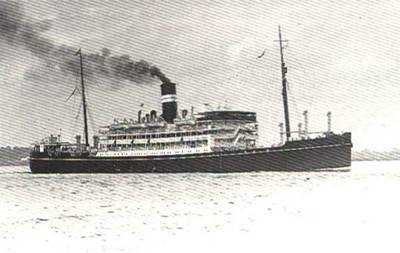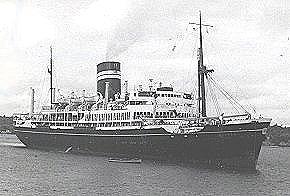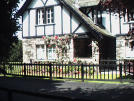First Draft
: South Shields. The Life of Brian
I found after a while at Mrs. Greenwell's that old faces go and new ones appear. I arrived back after classes one day and found in the lounge a new face sitting reading the paper. He quickly sprang to his feet and introduced himself as Brian, an old resident of Mrs. Greenwell's.
Brian would be 2 years older than I, I suppose, just under 6 feet tall with lank dark blond hair parted down one side and straight across. I found him very polite with a well-modulated almost accent-less voice. He was I learnt an ex-student at the College and was here for a while.
A day or 2 later, it was Saturday and just about everyone was out and I was in the lounge pensively deciding what to do when Brian walked in. As we chatted asking each other questions, Brian's story slowly emerged. Brian came from the Home Counties near London and had attended public school down there. Wanting to go to sea his father had sent him to South Shields Marine College where he had completed the course and failed his examinations. Studying and sitting the examinations again he, with "a spell of bad luck" failed again and "Father was none too pleased".
Yes, Brian failed again for the third time and said "I'm afraid Father went a bit wacko when I broke the bad news and demanded I return home... immediately". Brian then said, " I gave him a few days to cool off before I returned home, usually by then Father can be reasoned with".
Brian then told me his father had washed his hands of him and suggested he make his own way in life. To this end he had given him a cheque to bank to give him a start and Brian had headed back to South Shields "where all his good friends were". He was now in the process in looking for a job and he thought his prospects were good through his network of contacts. He had returned to stay with "kind Mrs. Greenwell who always made him feel at home".
As the next few weeks passed Brian became the polite friend to everyone always ready to listen to anyone's story or have a sympathetic ear for anyone’s woes and a kind remark. He had got a job shortly after he arrived as a store-man in a local potato crisps making factory and as he told Mrs. Greenwell "everyone has to start on the bottom rung of the ladder" and he was "determined to climb that ladder to better things".
I hope the story of Brian doesn't get too mixed up from here on. Some of what I am about to relate came to my ears second hand a few weeks later after the end of term break, some before the term break and some from Brian himself.
One morning at breakfast Mrs. Greenwell popped her head round the lounge door and said something like "Oh. Brian I want to see you about the rent, can you drop into the kitchen before work?” As most of us left the lounge to pick up our books for classes we could see Brian in earnest conversation with Mrs. Greenwell at the kitchen door. I at least didn't think much of this at the time. A few days later Mrs. Greenwell again put her head around the door asking if everything was alright... about the meal that is and said to Brian "Brian have those tins of crisps arrived yet?” Brian said " within two days Mrs Greenwell, my apologies for the delay".
Again I didn't think much of this short conversation between Mrs. Greenwell and Brian. The term was coming to an end and I was exited and looking forward to going home to see my parents once more and all the familiar homely things. John and Gyp, to walk up the green paddocks and bike down to Milnthorpe and a hundred and one other things.
After a few days at home, one morning Dad had come in for his 10 o'clocks’ when there was a knock on the door and Mum answered the knock. A male voice asked for Mr. Irving could he speak to him. Dad came to the door and went out. I could hear the buzz of voices he came back in and said to Mum "Mary, can you get me some money from the drawer?" Mum returned with the requested amount and he went out again, there was more conversation and then the sound of a car starting and driving away. Dad came in and said to me "here’s' a friend to see you" and on the doorstep stood Brian. I can tell you my heart leapt, I didn't know what to say... or do. Without another word Dad went out to continue his work.
It was a woe begotten Brian who sat on the sofa and he told me his tale. He had been thrown out of Mrs. Greenwell's for rent arrears and something about a pay records mix-up at the crisp factory and no wages for him. Nowhere to go, he suddenly thought of me and "by jingo, my address just happened to be in his wallet, and here I am". "Could I help?"
All kind of thoughts were running through my mind, Mrs. Greenwell came flooding back, the rent, the crisps, my address... I didn't remember giving it to him. Brian didn't ring quite true. I sat there I remember saying little to him; a wave of embarrassment had flooded over me. Was it my fault he was here?
Dad came in at lunchtime and Mum appeared, she had made herself scarce, to leave Brian and I to talk. Brian stood up as Dad came in and mumbled an apology for the trouble and upset he had caused. "If only he could stay for a few days to get his self together, he'd be off". I remember Dad saying in a firm voice "No lad, we haven’t room for you here. There's an Express bus through tonight, I'll help you with the fare". I think Brian mentioned returning to South Shields, I'm not sure now.
So Dad ran Brian down to the bus and saw him off. I never saw Brian again or heard what happened to him. But there is a postscript to this tale.





